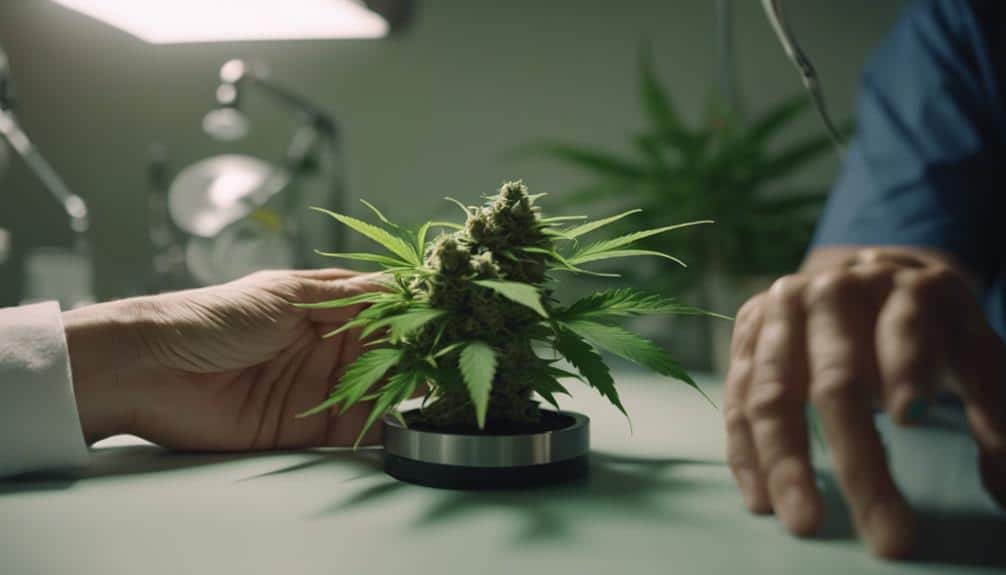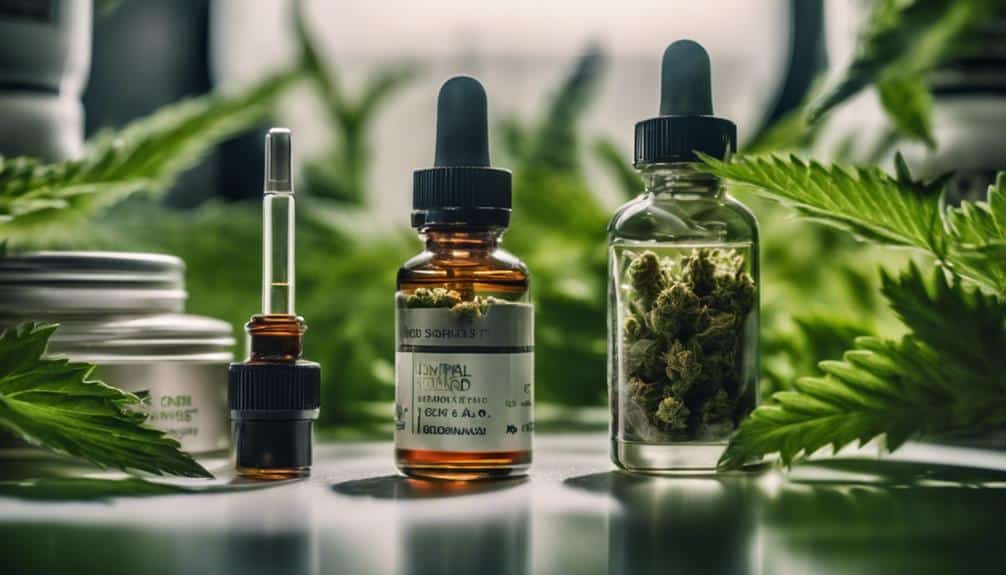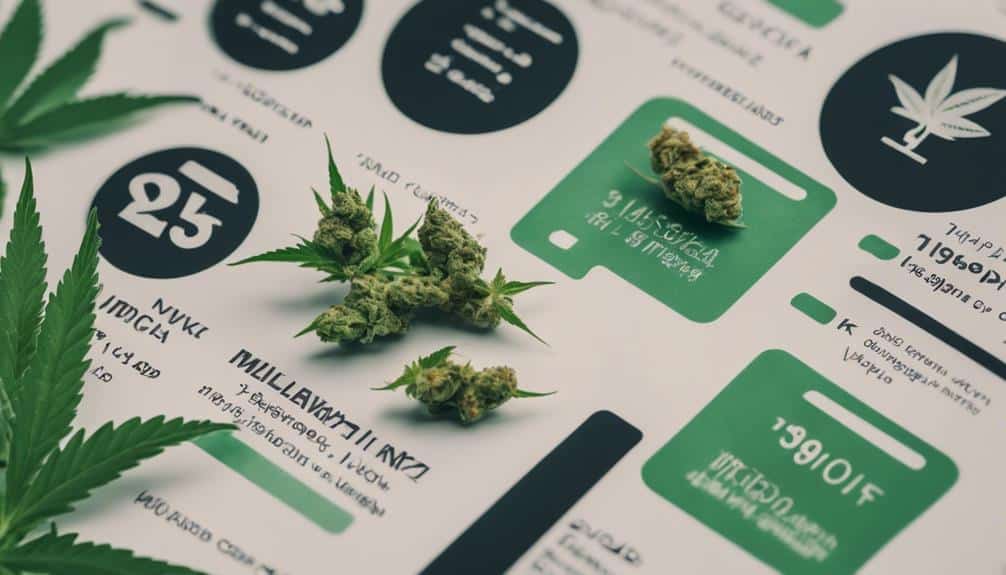Imagine you’re struggling with chronic pain that traditional treatments haven’t alleviated, and your doctor suggests Delaware’s Medical Marijuana Program as an alternative. This program offers a regulated way for patients with specific conditions to access medical cannabis, but where do you start? From understanding eligibility criteria to navigating the application process and knowing what documentation you’ll need, there’s a lot to consider. By understanding the roles of patients and caregivers, exploring product options, and being aware of legal protections and costs, you can make informed decisions about your healthcare. Curious about future developments?
Table of Contents
Eligibility Criteria

To qualify for Delaware’s medical marijuana program, you must be diagnosed with a debilitating medical condition as defined by state law. Additionally, there are specific eligibility criteria you need to meet, including residency requirements and age limitations.
Firstly, you must be a resident of Delaware. Proof of residency can be established through various documents such as a Delaware driver’s license or state-issued ID. This residency requirement ensures that the program benefits those who live within the state’s boundaries.
Secondly, age plays an important role in eligibility. You must be at least 18 years old to apply for a medical marijuana card independently.
For patients under 18 years old, a parent or legal guardian must apply on their behalf. This guardian must also serve as the caregiver and be responsible for administering and acquiring medical marijuana for the minor.
Qualifying Conditions
Qualifying conditions for Delaware’s medical marijuana program include a variety of serious and chronic illnesses that greatly impact a patient’s quality of life. If you’re looking to help patients manage their symptoms, understanding which conditions are covered is vital.
Chronic pain tops the list, as it greatly impairs daily functioning and overall well-being. Patients suffering from severe, debilitating pain that hasn’t responded to other treatments may find relief through medical marijuana.
Cancer patients often use medical marijuana to manage symptoms like nausea, loss of appetite, and pain related to both the disease and its treatment. Additionally, those with multiple sclerosis can benefit from the program as it helps alleviate muscle spasms and chronic pain associated with the condition.
Neurological disorders such as intractable epilepsy and Parkinson’s disease are also qualifying conditions where symptom management becomes crucial for maintaining a better quality of life.
Other qualifying conditions include severe muscle spasms, HIV/AIDS, severe nausea, glaucoma, and post-traumatic stress disorder (PTSD). Each of these conditions presents unique challenges; medical marijuana can offer a viable option for symptom relief.
Application Process

Understanding which conditions qualify is just the first step; now let’s explore the application process for Delaware’s medical marijuana program.
To start with, you’ll need to visit the Delaware Division of Public Health (DPH) website to download the medical marijuana application form. It’s crucial to fill out the form accurately to avoid any delays. Once completed, you’ll submit the application along with a non-refundable application fee, which is currently $50. Keep an eye on program updates, as fees and procedures may change over time.
After submitting your application, the DPH will review it. This process generally takes a few weeks, so patience is key. During this period, it’s important to check your email regularly for any communication from the DPH as they might request additional information or clarification.
If your application is approved, you’ll receive a medical marijuana card which you’ll need to present when purchasing medical cannabis from a licensed dispensary. Remember that your card has an expiration date; you’ll need to renew it periodically.
Staying informed about program updates will help ensure your participation in the program remains seamless and compliant with state regulations.
Required Documentation
Gathering essential documentation is crucial for ensuring that your application for Delaware’s medical marijuana program is processed smoothly and without delays. Firstly, you’ll need to obtain necessary certification forms from a licensed Delaware physician. These forms must clearly indicate that you have a qualifying medical condition that can benefit from medical marijuana treatment. Without accurate and complete certification forms, your application won’t be approved.
In addition to certification forms, specific identification requirements must also be met. Make sure to provide a copy of valid state-issued ID such as a Delaware driver’s license or state identification card; this verifies residency and ensures eligibility criteria are met. If no state-issued ID is available other forms of identification like passport along with proof of residency can be acceptable.
Patient and Caregiver Roles

In Delaware’s medical marijuana program, both patients and caregivers play essential roles in ensuring effective and compliant use of medical cannabis. As a patient, you’re responsible for obtaining a valid medical marijuana card, adhering to recommended dosages, and ensuring that your usage aligns with state regulations. It’s your duty to stay informed about your condition and how medical cannabis can help manage your symptoms. Regular consultations with your healthcare provider are vital to adjust treatment plans as needed.
Caregivers offer invaluable support to patients who may be unable to manage their own medical marijuana use. The caregiver benefits include the ability to purchase, transport, and administer medical cannabis on behalf of the patient. To become a caregiver, you must register with the state and undergo a background check. Your role demands a high level of responsibility including keeping the medical cannabis secure and ensuring it’s used solely for the patient’s medical needs.
Both roles require commitment to compliance and compassion. By fulfilling respective responsibilities, you contribute to a system designed to provide safe and effective relief for those in need; this ensures program integrity.
Dispensary Locations
Knowing where authorized dispensary locations are is essential for patients and caregivers seeking legal access to medical cannabis in Delaware conveniently. The state has multiple dispensaries strategically located across various regions ensuring that travel distances are minimized when obtaining medication.
When planning visits it’s important understand each dispensary’s operating hours; most operate seven days a week but hours can vary so checking beforehand saves time and avoids inconvenience.
Additionally, knowing accepted payment methods is important. Most dispensaries accept cash but some also offer debit card options. Here’s a quick checklist to keep in mind:
- Operating hours: Confirm the dispensary’s hours of operation to plan your visit efficiently.
- Payment methods: Verify if the dispensary accepts cash, debit cards, or other forms of payment.
- Location details: Note the exact address to ensure you’re heading to the correct place.
Product Options

When exploring Delaware’s medical marijuana program, you’ll find a diverse range of product options tailored to meet various medical needs and preferences. Whether you’re seeking relief from chronic pain or managing another condition, the product variety ensures that you’ll find something suitable.
Delaware’s dispensaries offer an array of consumption methods including dried flower, tinctures, edibles, and topicals. Dried flower can be vaporized or smoked providing rapid relief for acute symptoms.
If smokeless options are preferred tinctures can be taken sublingually for quick absorption while edibles offer longer-lasting effects through ingestion.
For those with localized pain or skin conditions topicals such as creams and balms are available; these are applied directly to skin allowing targeted relief without psychoactive effects.
Capsules and pills provide a familiar and precise dosing method for consistent symptom management.
Legal Protections
While exploring Delaware’s medical marijuana program’s diverse product options, it’s important to understand the legal protections that guarantee your safe and lawful use.
As a patient, you’re entitled to specific protections ensuring you can use medical marijuana without fear of legal repercussions in several key areas.
Firstly, Delaware law provides employment protections. Employers can’t discriminate against you for being a registered medical marijuana patient. They can’t terminate, refuse to hire or otherwise penalize you solely based on your patient status. However, this doesn’t mean you can use or be under the influence while at work.
Secondly, housing rights are safeguarded. Landlords can’t refuse to rent or evict you because of participation in the medical marijuana program; this ensures secure accommodation without worrying about legal consequences related to treatment.
Last but not least, criminal prosecution protection is provided for possessing and using medical marijuana as long as state regulations are followed.
- Employment protections: Prevent discrimination in the workplace.
- Housing rights: Ensure secure accommodation.
- Criminal immunity: Protects against legal consequences for possession and usage within state regulations.
Being informed about these legal protections allows confident navigation of the program knowing your rights are upheld.
Program Costs

Understanding the costs associated with Delaware’s medical marijuana program is essential for budgeting your treatment effectively. When you first apply, you’ll need to pay a registration fee which is currently set at $50. This fee covers the processing of your application and issuance of your medical marijuana card. Please be aware that this fee is non-refundable even if your application is denied so ensure all paperwork is in order before submitting.
Once approved, your medical marijuana card will be valid for one year. As expiration approaches, renewal costs must be handled to maintain access to medical marijuana. The renewal fee is also $50 making it easier to plan annual expenses. Keep in mind that if you let your card expire, you’ll have to go through the initial application process again which could delay treatment.
Additional costs may include consultations with healthcare providers necessary for obtaining physician’s certification required for the program. While these costs can vary they’re a critical part of overall treatment expenses; understanding these fees better serves needs and those relying on Delaware’s medical marijuana program.
Future Developments
As you manage costs associated with Delaware’s medical marijuana program it’s also important to stay informed about future developments that could impact treatment options and expenses.
A significant development to watch out for is potential federal legalization; if marijuana becomes legal at federal level it could lead to increased competition potentially driving down prices and expanding access.
Moreover advancements in research are continually shaping landscape of medical marijuana; increased funding and interest in cannabis research could:
- Lead to discovery of new medical applications offering more treatment options.
- Improve quality and safety of products through better cultivation and processing techniques.
- Provide clearer guidelines and dosing recommendations ensuring safer and more effective use.
Staying up-to-date with these developments is essential for making informed decisions about treatment. Federal legalization could drastically alter regulatory and economic environment while research advancements can provide valuable insights into most effective uses of medical marijuana.
Conclusion
So, there you have it. Delaware’s Medical Marijuana Program is your ticket to relief—if you can navigate the bureaucratic labyrinth of eligibility, documentation, and costs.
Patients and caregivers, you’re the unsung heroes here, juggling compliance like pros. With a buffet of cannabis products and legal shields, you’re covered. But keep an eye out for federal shifts; who knows, maybe one day Uncle Sam will join the party. Until then stay informed and stay compliant.
If you want to learn more why not visit Cannabis Docs of Delaware? We’re here to help every step of the way. Feel free to give us a call at (855) 420-6797; we’d love to chat and answer any questions you might have!

